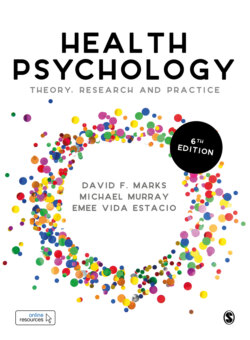Читать книгу Health Psychology - Michael Murray - Страница 117
На сайте Литреса книга снята с продажи.
Discourse Analysis
ОглавлениеDiscourse analysis is a set of procedures for analysing language as used in speech or texts. It focuses on the language and how it is used to construct versions of ‘social reality’ and what is gained by constructing events using particular terms. It has links with ethnomethodology, conversation analysis and the study of meaning (semiology). There are two forms of discourse analysis. The first, discursive psychology, evolved from the work of Potter and Wetherell (1987) and is concerned with the discursive strategies people use to further particular actions in social situations, including accounting for their own behaviour or thoughts. This approach has been used to explore the character of patient talk and the character of doctor–patient interactions. There is a particular preference for naturally occurring conversations, e.g., mealtime talk (Wiggins et al., 2001). Locke and Horton-Salway (2010) analysed how class leaders talked to antenatal class members about pregnancy, childbirth and infant care in ‘golden age’ or ‘bad old days’ stories variably to contrast the practices of the past with current practices. The second type of discourse analysis, Foucauldian discourse analysis (FDA), was developed by Ian Parker (1997) and others because they criticized the previous approach as evading issues of power and politics. FDA aims to identify the broader discursive resources that people in a particular culture draw upon in their everyday lives. This approach has been used to explore such issues as smoking (Gillies and Willig, 1997) and masculine identity (Tyler and Williams, 2014).
